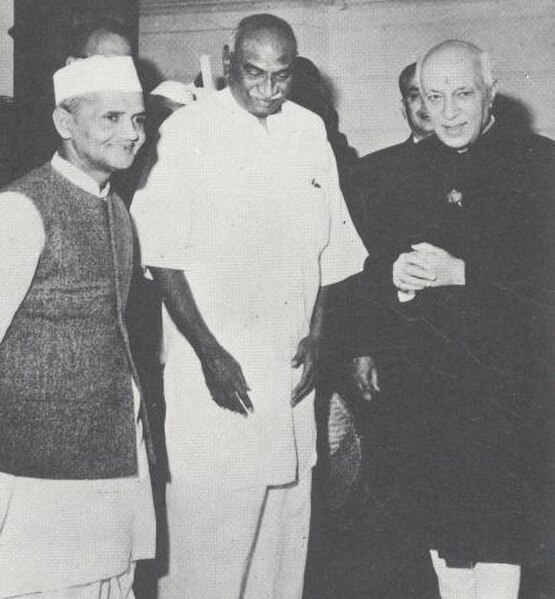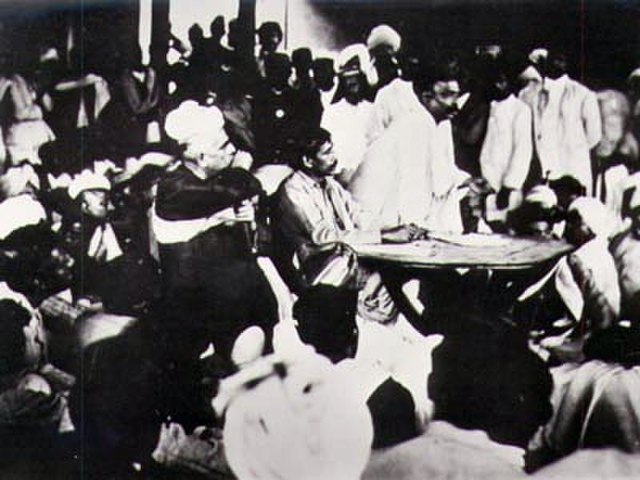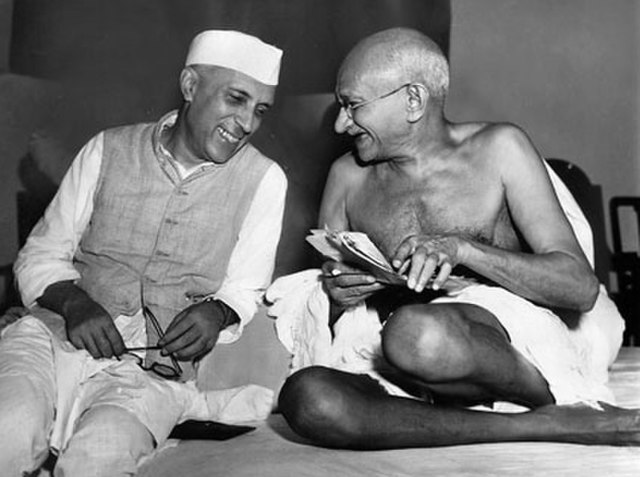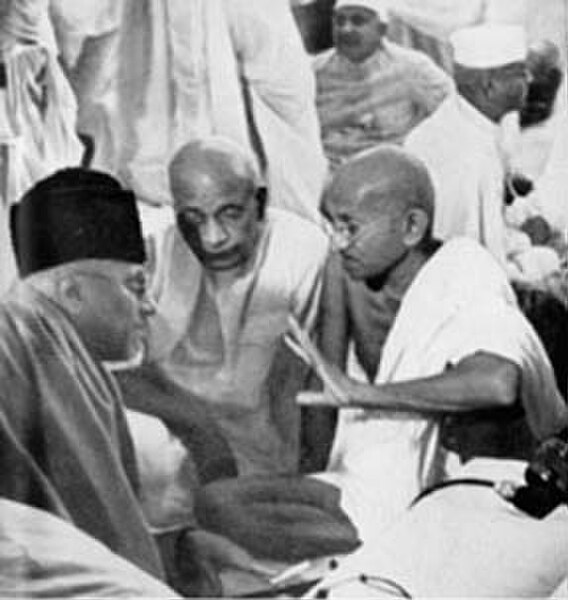Kumaraswami Kamaraj, popularly known as Kamarajar was an Indian independence activist and politician who served as the Chief Minister of Madras from 13 April 1954 to 2 October 1963. He also served as the president of the Indian National Congress between 1964–1967 and was responsible for the elevation of Lal Bahadur Shastri and later Indira Gandhi to the position of Prime Minister of India, because of which he was widely acknowledged as the "Kingmaker" in Indian politics during the 1960s. Later, he was the founder and president of the Indian National Congress (O).
Portrait of Kamaraj from a 1976 commemorative stamp
Kamaraj (second fro left) during a visit to a party member's house in 1955
Kamaraj (left) during Queen Elizabeth II's visit to India in 1961
Kamaraj (center) with Jawaharlal Nehru (right) and Lal Bahadur Shastri (left)
The Indian National Congress (INC), colloquially the Congress Party or simply the Congress, is a political party in India with deep roots in most regions of India. Founded on 28 December 1885, it was the first modern nationalist movement to emerge in the British Empire in Asia and Africa. From the late 19th century, and especially after 1920, under the leadership of Mahatma Gandhi, the Congress became the principal leader of the Indian independence movement. The Congress led India to independence from the United Kingdom, and significantly influenced other anti-colonial nationalist movements in the British Empire.
First session of Indian National Congress, Bombay, 28–31 December 1885
Bal Gangadhar Tilak speaking in 1907 as the Party split into moderates and extremists. Seated at the table is Aurobindo Ghosh and to his right (in the chair) is G. S. Khaparde, both allies of Tilak.
Mahatma Gandhi and Jawaharlal Nehru during a meeting of the All India Congress, in 1946
Azad, Patel and Gandhi at an AICC meeting in Bombay, 1940








